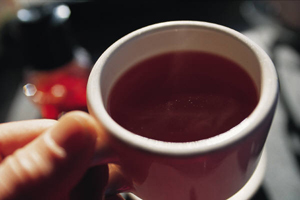Oyster Extract "News" for your good health!

Current News which
discusses available
Blood and Immune products.
CURRENT NEWS-April 5, 2005
News Articles of Interest, related to the usage of Oyster Extract Health Supplements.
The Immune System is your natural ability to protect your body from disease. Zinc activates the correct function of your immune cells. Studies show that people who suffer from Zinc deficiency nearly always have a decreased immune system and are subject to infections and illness.
Each month, OY-EX.com will provide an interesting article of topical discussion regarding medical issues related to liver disease. OY-EX is an important part of a regime to maintain good health, including the best vitamins and minerals found in nature to provide a healthy liver and immune system.
Research
Coffee Consumption Reduces the Risk of Liver Cancer
Medical Research News
April 5, 2005
Over the past 20 years, a body of data has accumulated that suggests a clear benefit for liver function and liver disease from drinking coffee. Several studies have demonstrated that drinking coffee lowers gamma-glutamyltransferase (GGT) activity, especially among heavy alcohol drinkers. In a Japanese study of 2494 men, the mean GGT was about 30% lower among those who drank 4 or more cups of coffee daily compared to non drinkers.
Although GGT is a relevant indicator of the risk for cirrhosis, serum alanine aminotransferase (ALT) activity is a more specific marker of liver injury, and a few population-based surveys from Italy and Japan have found a similar inverse relation between coffee drinking and ALT levels.
Results of a study by Gelatti et al published in the current issue of the Journal of Hepatology (April 2005) provide more evidence of an inverse relation between drinking coffee and hepatocellular carcinoma (HCC) [liver cancer].
The aim of this study was to investigate the role of coffee in HCC, taking the main risk factors into account. Researchers conducted the study in northern Italy, where they enrolled 250 hepatocellular (HCC) patients and 500 controls who had been hospitalized for any reason other than neoplasms and liver and alcohol-related diseases.
A standardized questionnaire provided information to the investigators concerning the patients' lifetime history of coffee.
Results
Coffee consumption by the study group in the decade prior to the questionnaire/interview was associated with a decreasing risk of HCC with a clear dose-effect relation.
With respect to non coffee drinking participants, the odds ratios (ORs) were: 0.8, for 1-2 cups/day, 0.4 for 3-4 cups/day and 0.3 for 5 or more cups/day.
The ORs for HCC decreased for drinking >2, compared to 0-2 cups/day of coffee, for an alcohol intake >80g/day, for presence of hepatitis B virus infection or hepatitis C virus infection.
The authors conclude, "Coffee drinking was inversely associated with hepatocellular carcinoma regardless of its etiology."
Discussion
Compared with non coffee drinkers, the relative risks (RRs) were 0.8 for drinkers of 1-2 cups per day, 0.4 for those of 3-4 cups, and 0.3 for drinkers of five or more cups per day. The inverse relation between coffee and primary liver cancer is stronger than in previous studies, indicating that the relation is probably real, and not due to chance.
The combined, pooled RR from three published studies of coffee and hepatocellular carcinoma for drinkers of three or more cups of coffee per day as compared to non coffee drinkers is approximately 0.6.
More important, the study by Gelatti et al. provides original information on the independent effect of coffee from the major recognized risk factors for primary liver cancer. The inverse relation with coffee, in fact, was of similar magnitude in subjects negative or positive for HBV or HCV serum markers, as well as in non- or moderate drinkers and in heavy drinkers.
Coffee appears to have a real, but moderate effect in reducing the risk of hepatocellular carcinoma. Various components of coffee have been related to such a favorable effect, including caffeine, coffee oils kahweol or cafestol, and antioxidant substances from coffee beans, but no definite evidence is available for any of these components.
Despite these uncertainties, HCC should be added to other digestive tract cancers on which a favorable role of coffee drinking has been suggested, including oral and pharyngeal, oesophageal and colorectal cancers.
04/05/05
References
U Gelatti and others (for the Brescia HCC Study Group). Coffee consumption reduces the risk of hepatocellular carcinoma independently of its aetiology: a case-control study. Journal of Hepatology 42(4): 528-534. April 2005.
C La Vecchia. Coffee, liver enzymes, cirrhosis and liver cancer (Editorial). Journal of Hepatology 42(4): 444-446. April 2005.
http://www.hivandhepatitis.com/hep_c/news/2005/040405a.html
